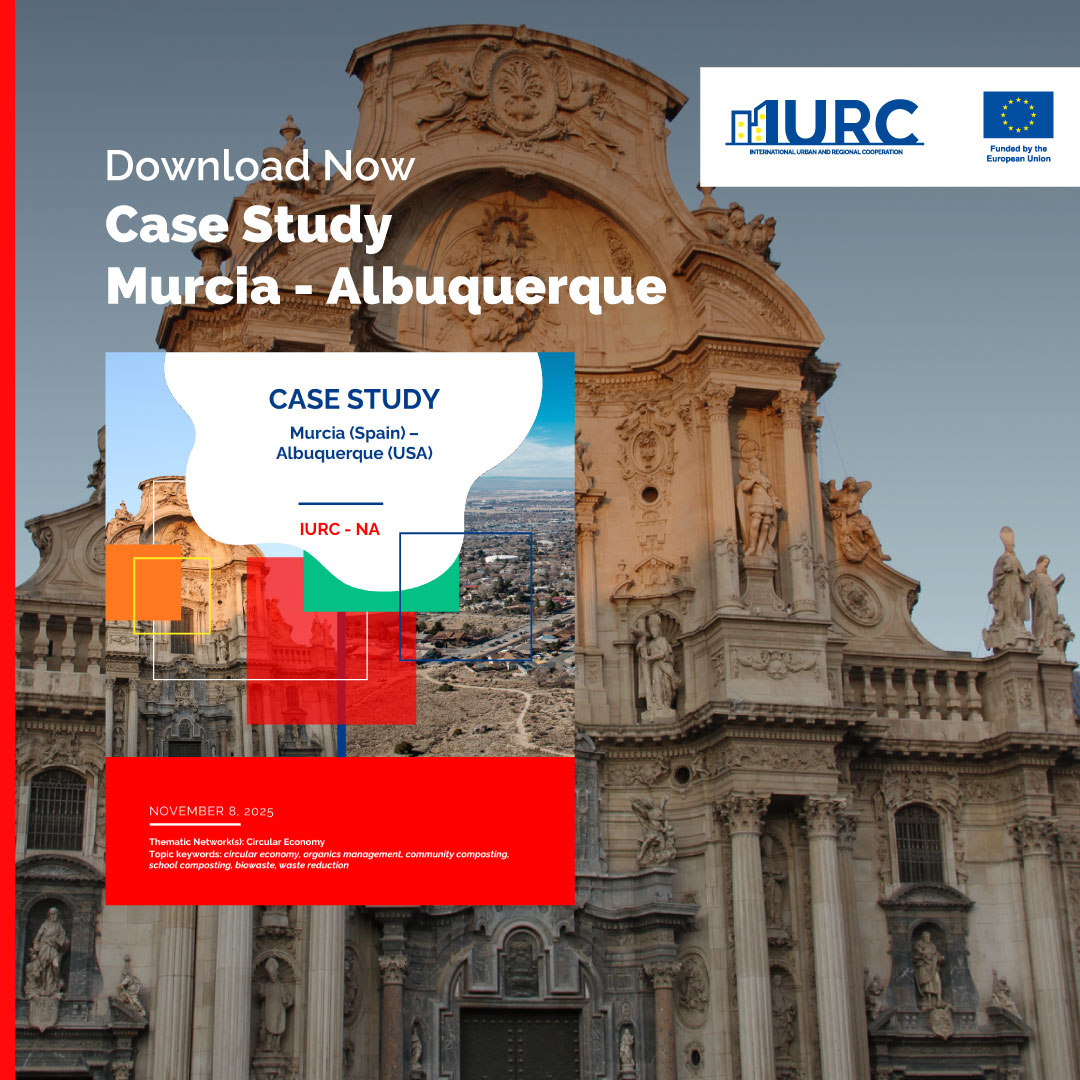November 11th, 2025
This IURC North America Case Study highlights how the cities of Murcia (Spain) and Albuquerque (USA) are working together to advance circular economy (CE) practices, improve organic waste management, and implement innovative community, school, and municipal initiatives.
Both cities, despite their different contexts, face shared challenges in waste diversion, citizen engagement, and sustainable resource management. The city of Murcia benefits from large-scale EU-backed infrastructure, including initiatives like the VALUEWASTE pilot plant, while the city of Albuquerque implements community-driven composting pilots. By collaborating through study visits, knowledge exchange, and pilot projects, the two cities have created a platform for scalable solutions that deliver climate, social, and economic benefits.
This Case Study demonstrates the importance of user-focused design, participatory planning, and data-driven systems in municipal waste management. Murcia and Albuquerque illustrate that cultural acceptance, community participation, and targeted pilots are essential to closing the organic waste loop, integrating school programs, and promoting intergenerational collaboration.
The cooperation also highlights how cities can leverage technical expertise, real-time data, and practical experience to address common challenges. Albuquerque’s community composting guides and operational plans provided Murcia with valuable insights into implementing school and neighborhood-level composting programs. In return, Murcia’s experience with large-scale organics collection, real-time waste tracking, and materials recovery inspired Albuquerque to expand its own Balanced Resource Acquisition and Information Network (B.R.A.I.N.) for integrated waste management.
Through this collaboration, both cities are charting pathways to reduce food waste, advance circular economy goals, and engage citizens in sustainable practices. Murcia is introducing school-based audits and community composting initiatives to repurpose organic waste, while Albuquerque is strengthening municipal frameworks, data tracking, and educational programs. Together, they provide a model for other cities worldwide seeking to integrate circular economy strategies with local community engagement.
📘 Read the full Case Study to discover the innovative solutions, lessons learned, and actionable strategies that are helping Murcia and Albuquerque build a circular future.
